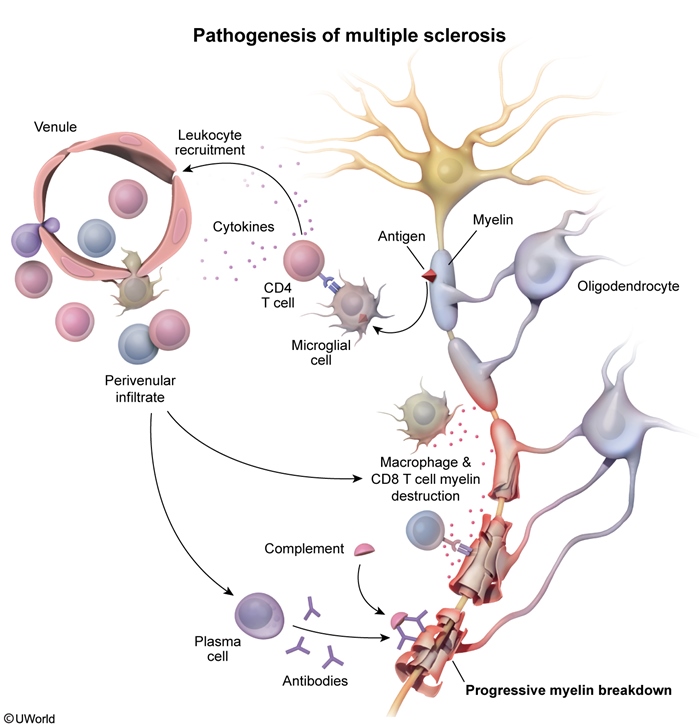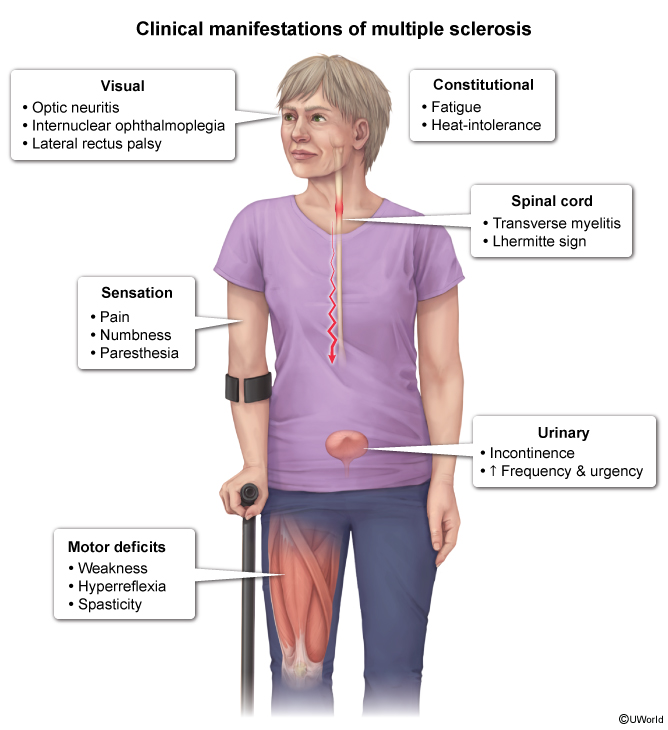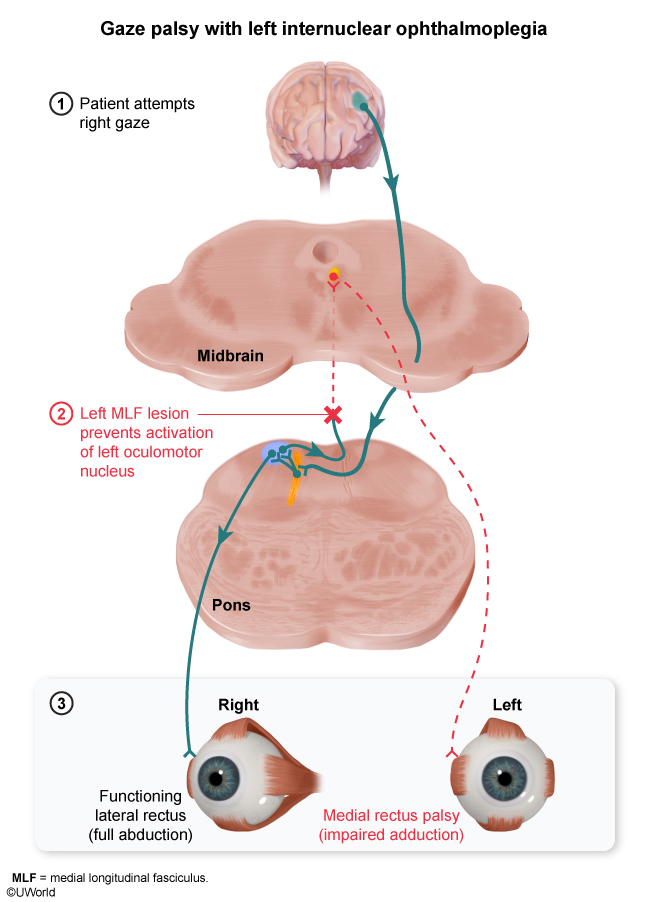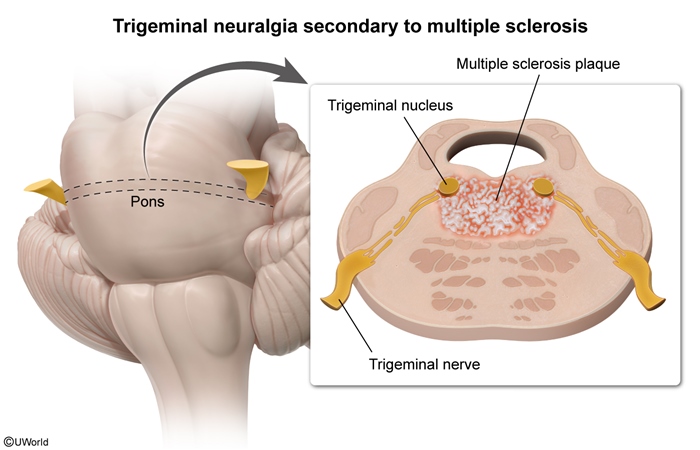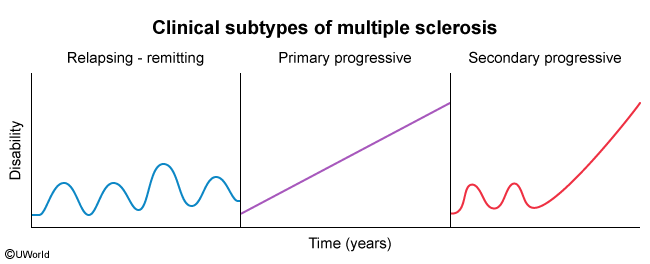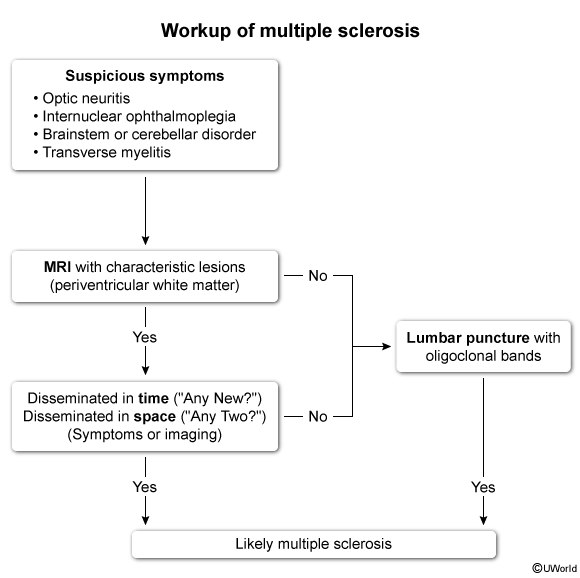Multiple Sclerosis
Article Sections
Introduction
Multiple sclerosis (MS) is a chronic autoimmune disorder that causes demyelination and neurodegeneration in the CNS, leading to a wide array of neurologic symptoms.
Pathophysiology
MS is an autoimmune disorder in which the immune system attacks the myelin sheath, the protective covering of the nerves in the CNS formed by oligodendrocytes (Figure 1).
Infection with Epstein-Barr virus (EBV) seems to be required to trigger the development of MS. The immune response may be related to molecular mimicry because EBV has an antigen that is similar to a glial cell adhesion molecule. After EBV infection, T-helper cells abnormally react to antigens in myelin, causing a release of inflammatory cytokines (eg, interferon-gamma) that promote the infiltration of destructive macrophages/microglia and leukocytes. B cells also play a role, which explains the presence of oligoclonal immunoglobulin bands in the cerebrospinal fluid (CSF) of patients with MS.
Continue Learning with UWorld
Get the full Multiple Sclerosis article plus rich visuals, real-world cases, and in-depth insights from medical experts, all available through the UWorld Medical Library.
Unlock Full AccessFigures
